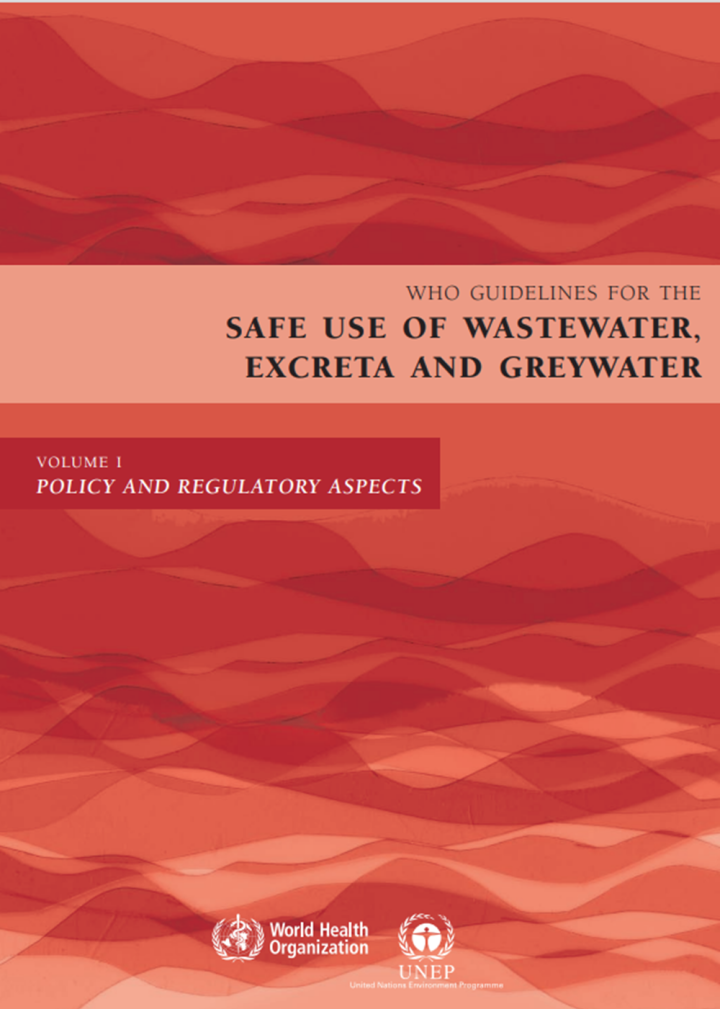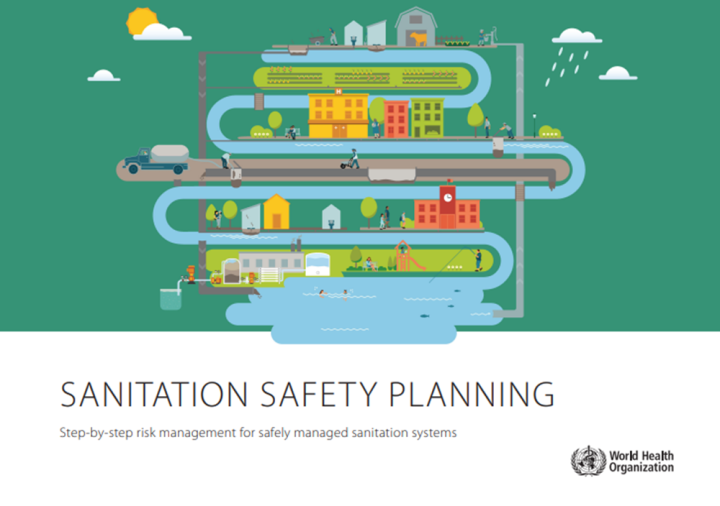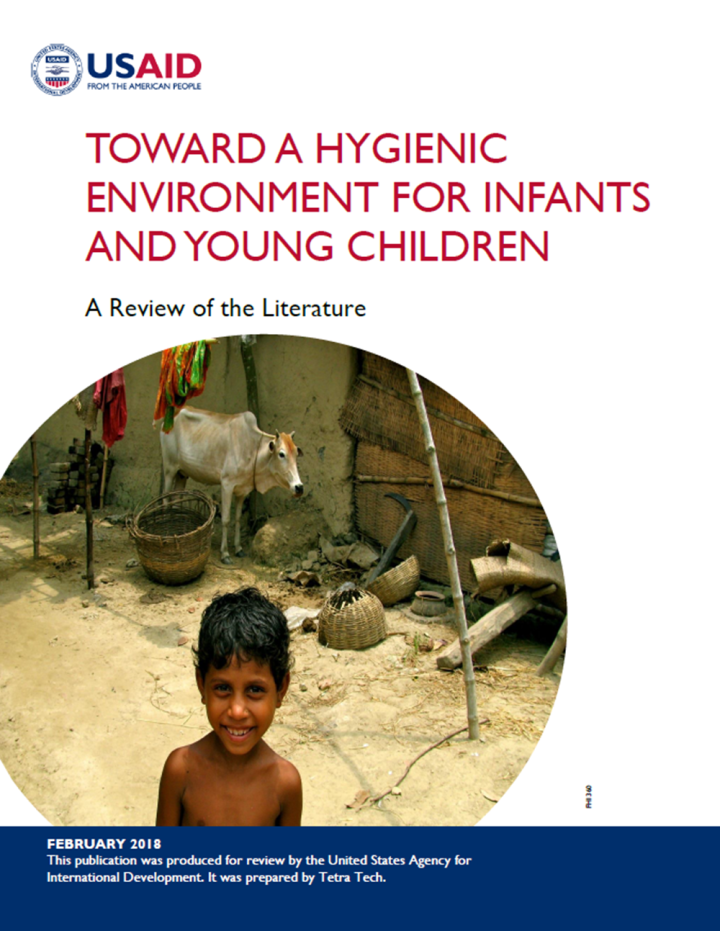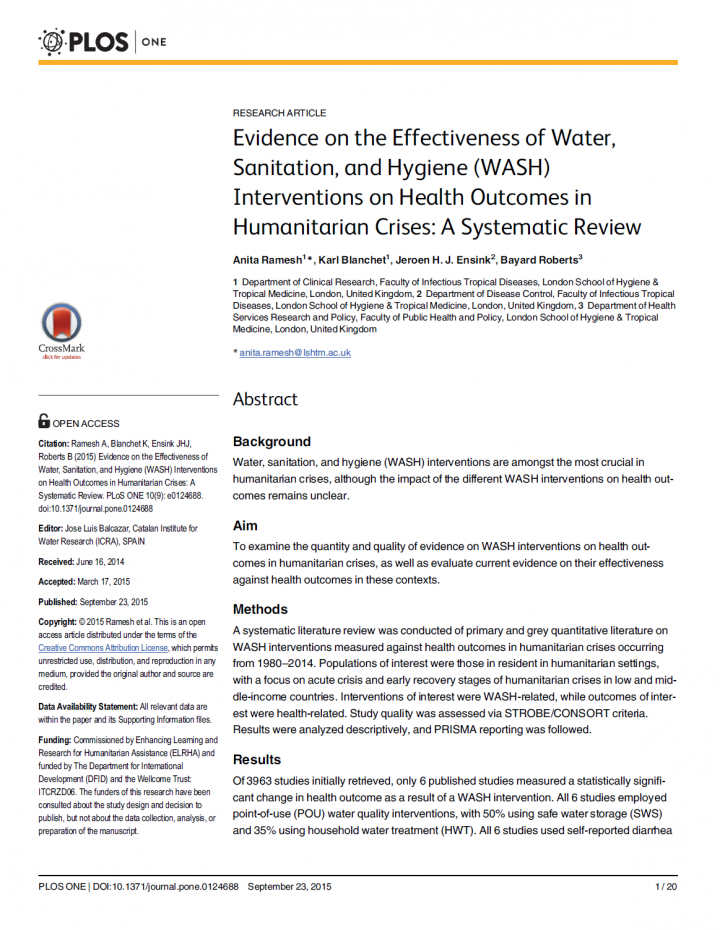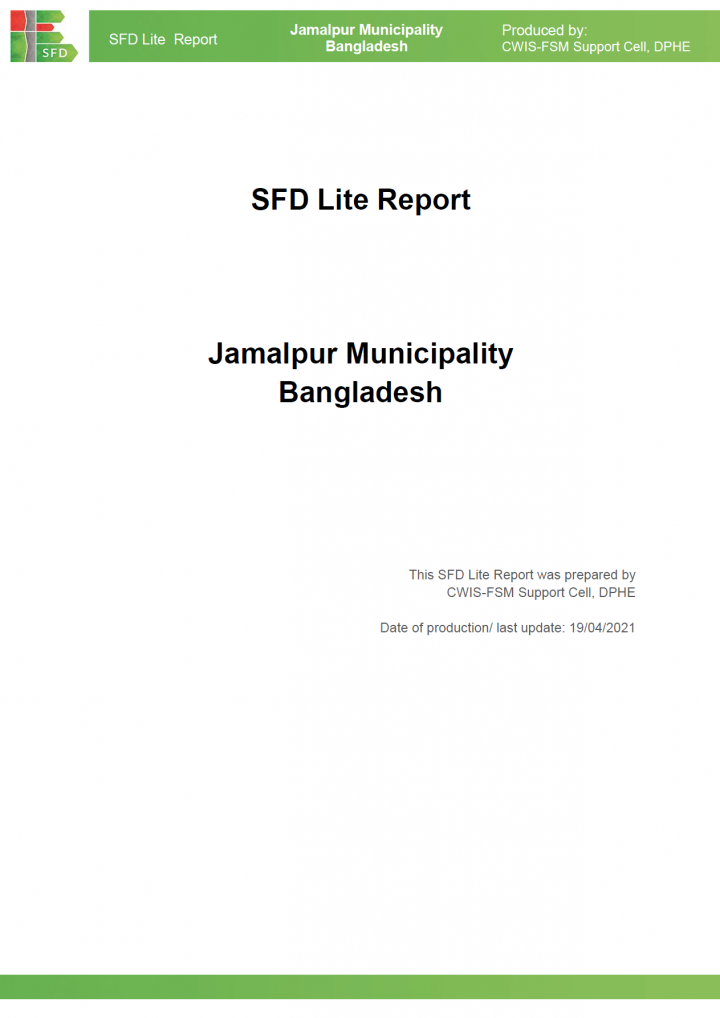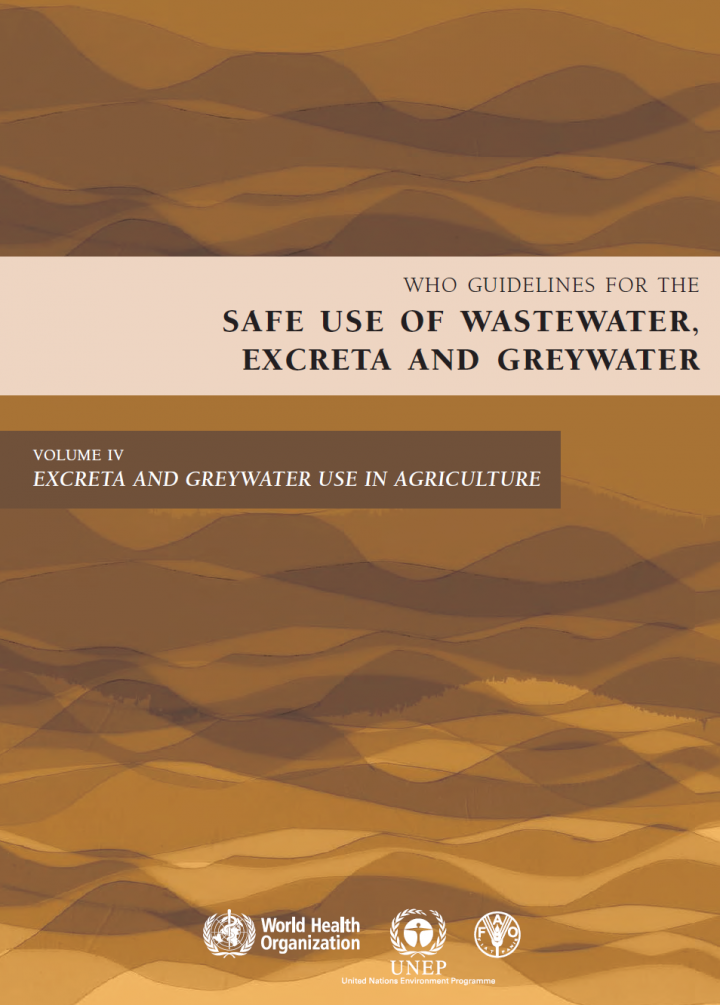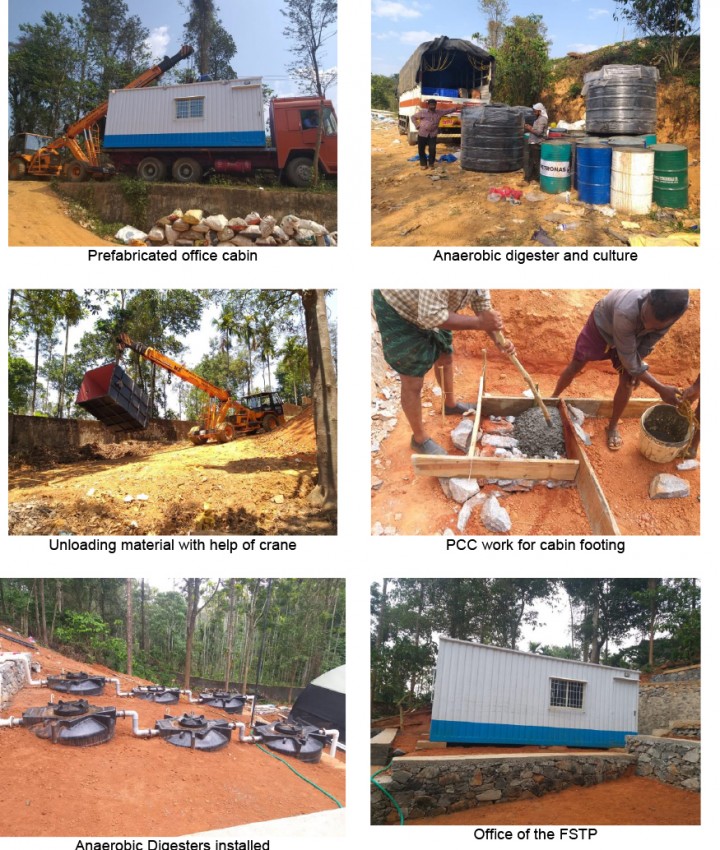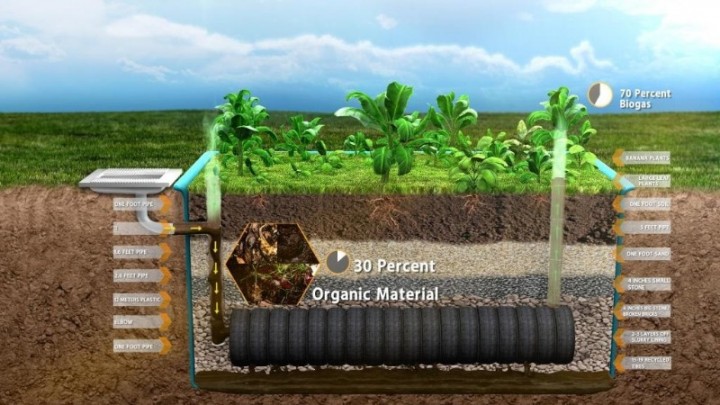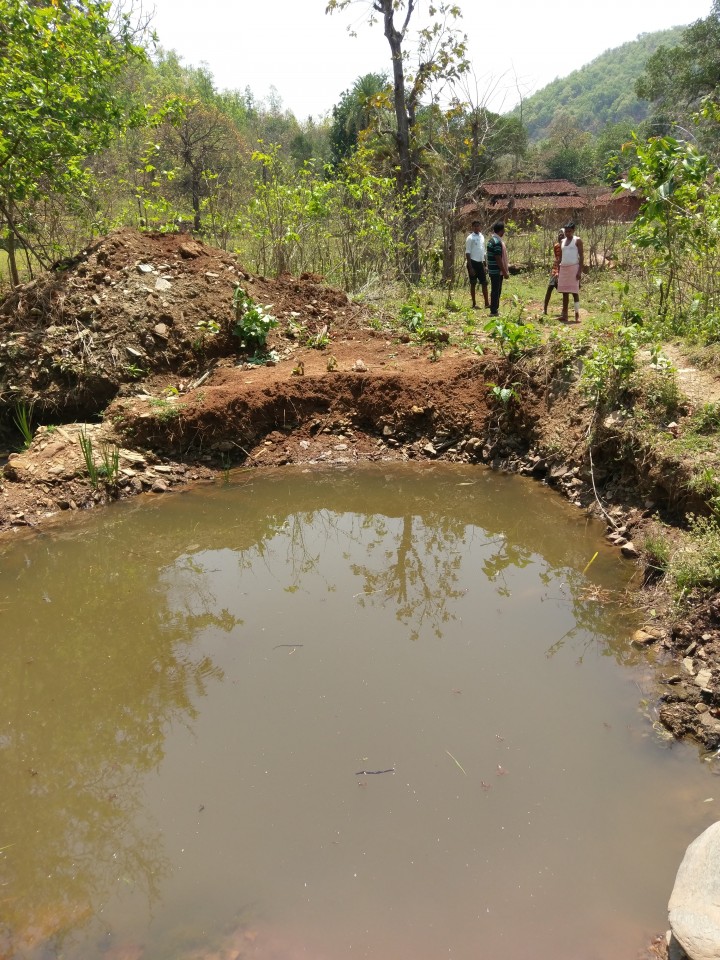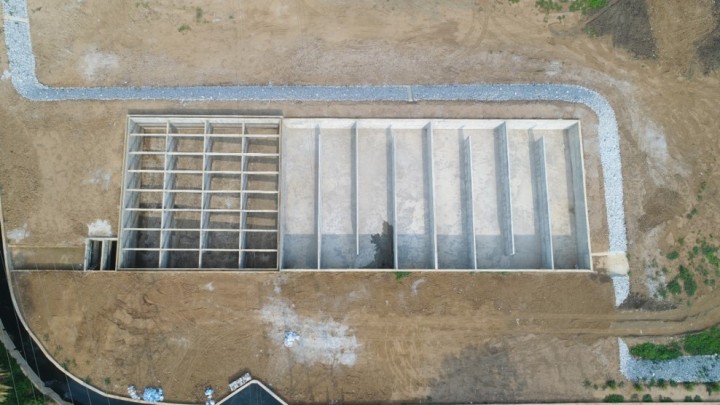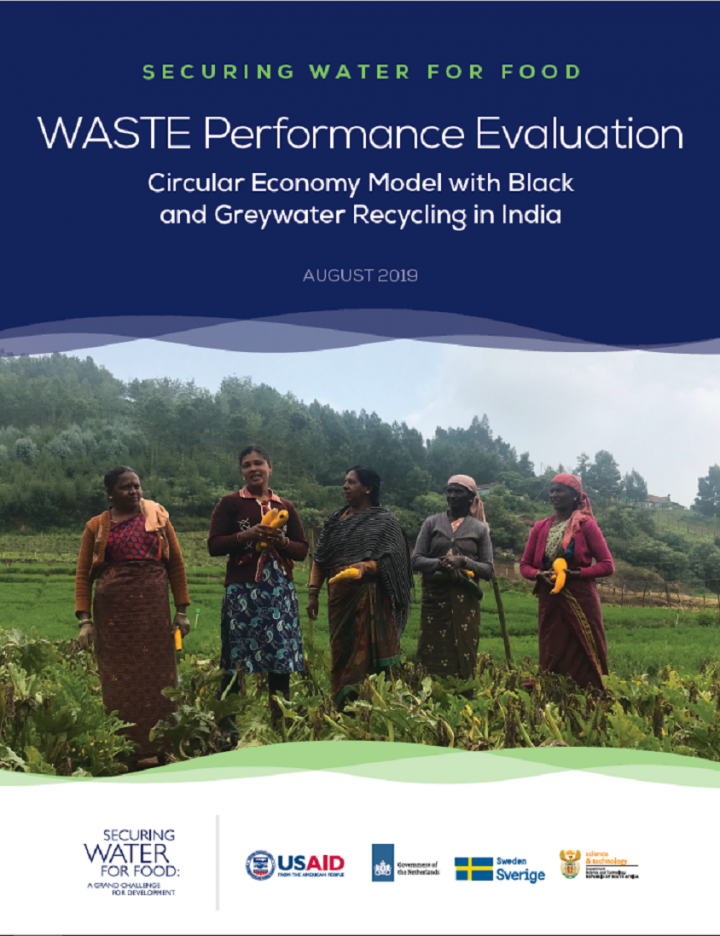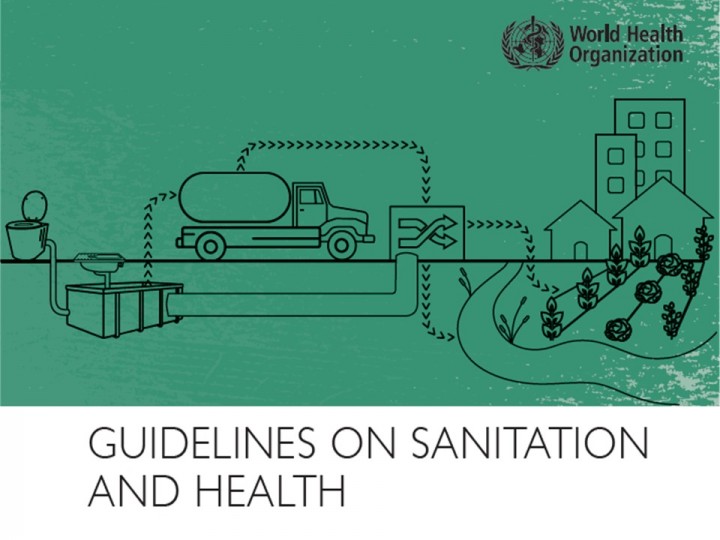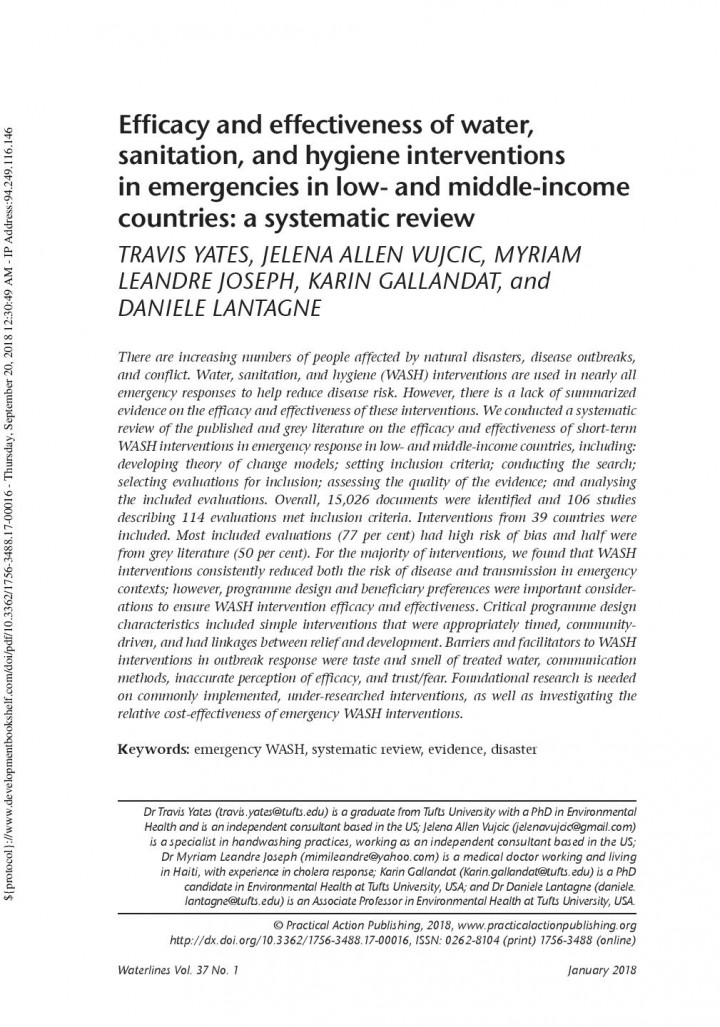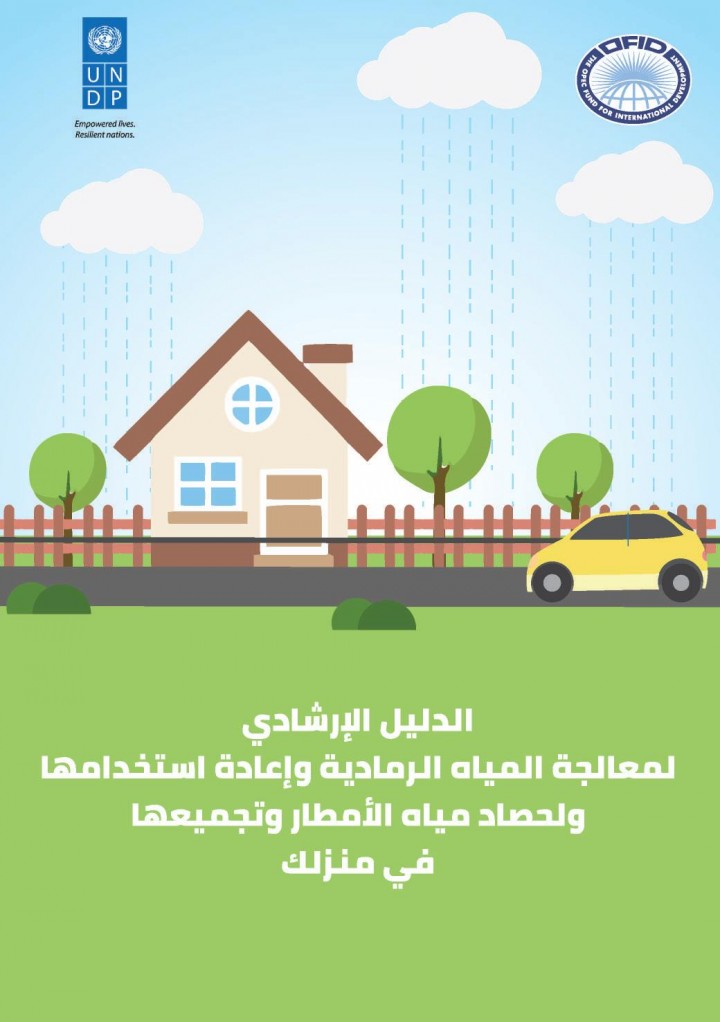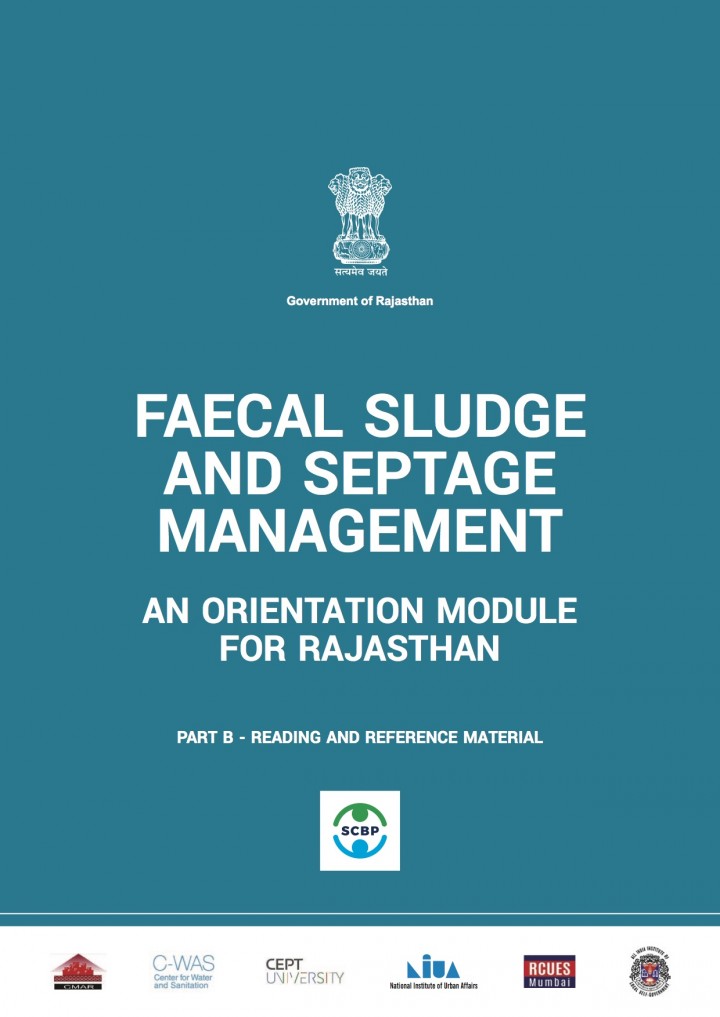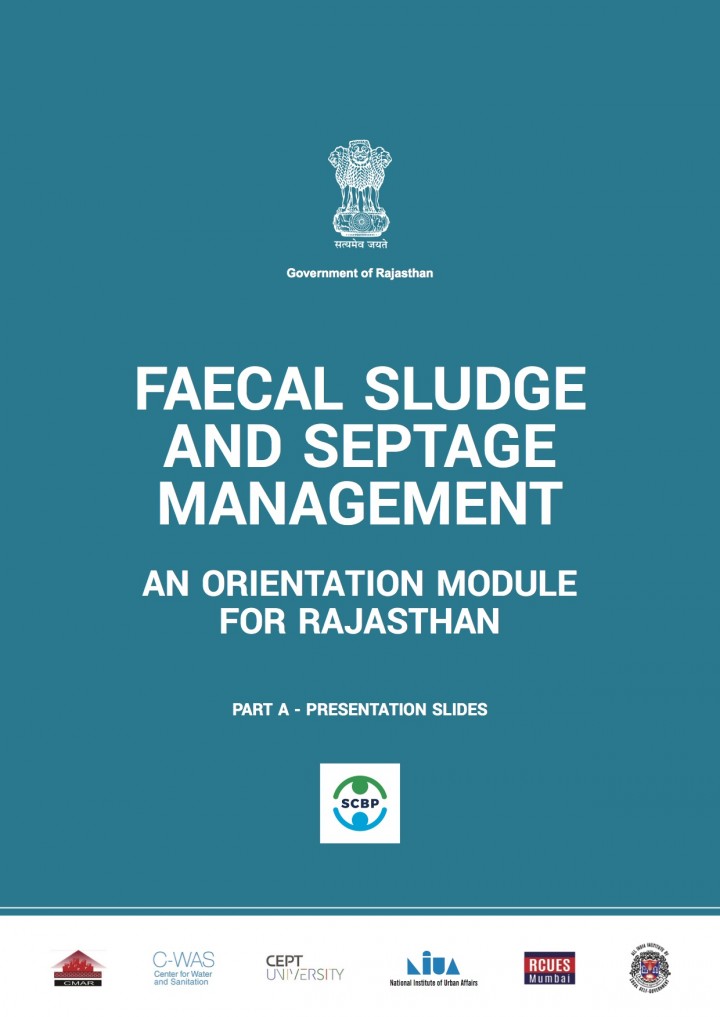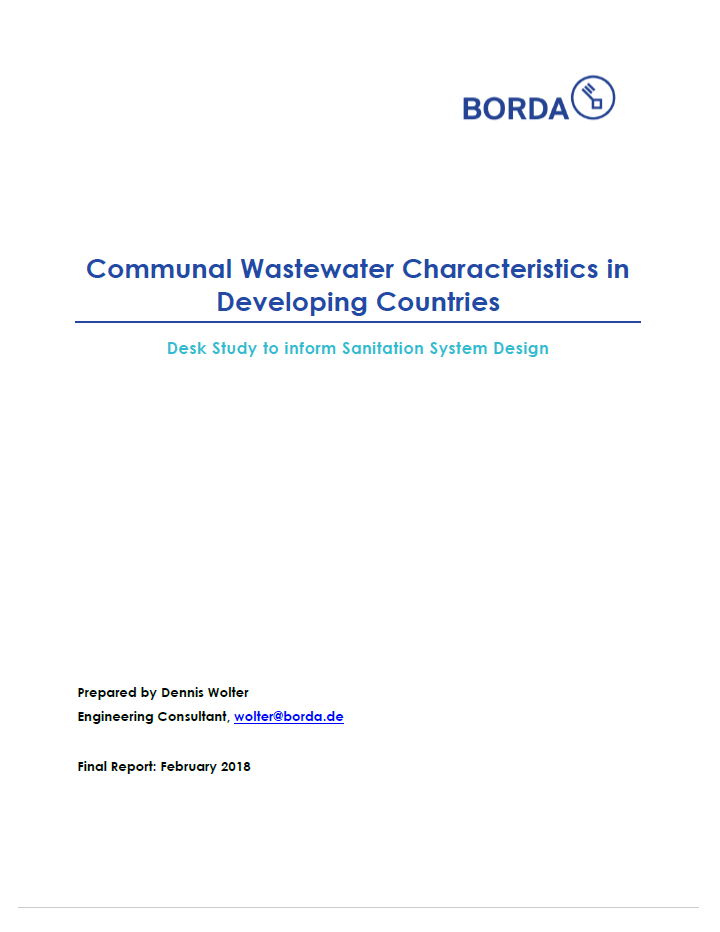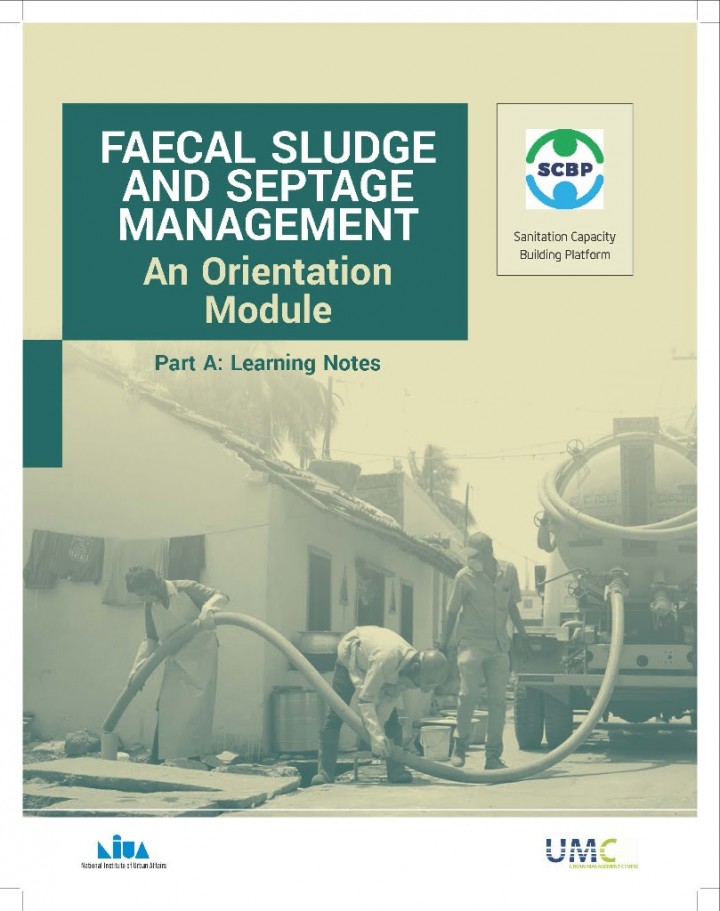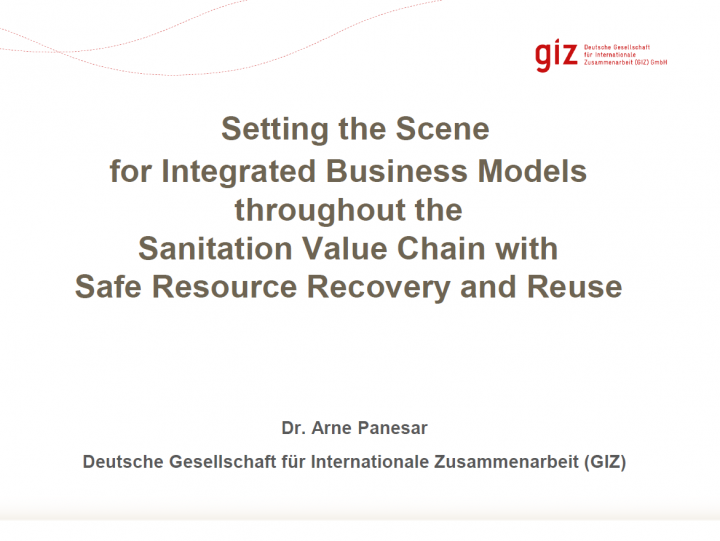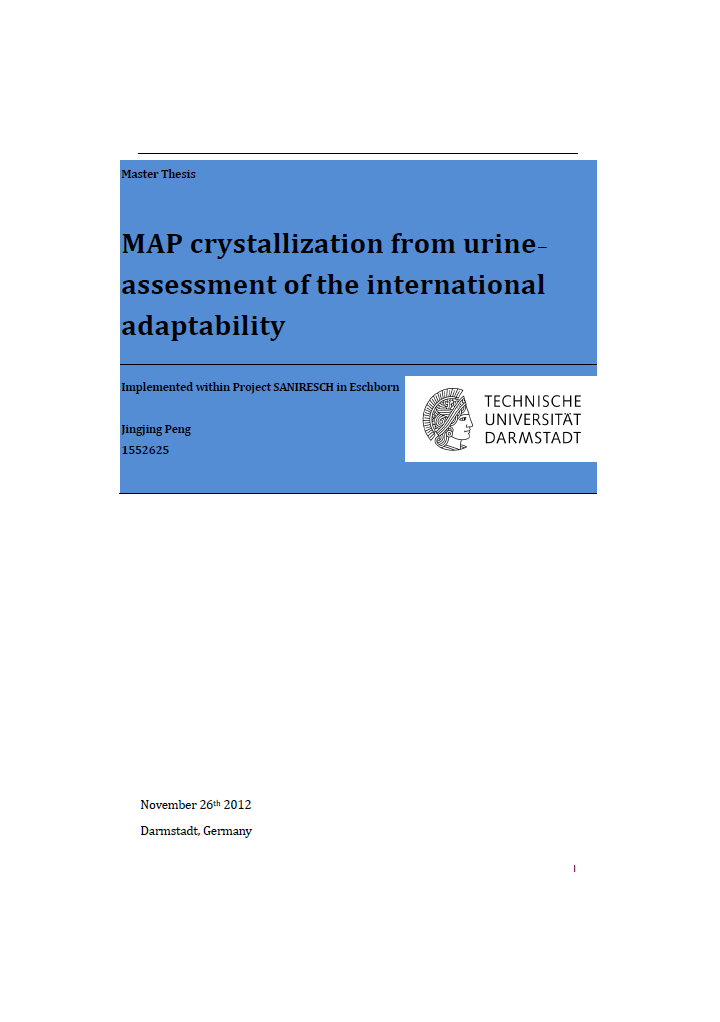World Health Organization (2013) Guidelines for the safe use of wastewater, excreta and greywater - Volume 1
Volume 1 of the Guidelines presents policy issues and regulatory measures distilled from the technical detail found in volumes 2, 3 and 4. Those faced with the need to expedite the development of policies, procedures and regulatory frameworks, at national and local government levels, will find the essential information in this volume. It also includes summaries of the other volumes in the series.
World Health Organization (2022) Sanitation safety planning - Second edition
This Sanitation safety planning (SSP) manual provides practical, step-by-step guidance to assist in the implementation of the 2018 World Health Organization (WHO) Guidelines on sanitation and health and the 2006 WHO Guidelines for safe use of wastewater, excreta and greywater in agriculture and aquaculture. The approach and tools should be applied to all sanitary systems to ensure that they are managed to meet health objectives. The […]
USAID (2018) Toward a hygienic environment for infants and young children A Review of the Literature
The USAID Water, Sanitation, and Hygiene Partnerships and Learning for Sustainability (WASHPaLS) project conducted a review of the scientific and grey literature, complemented by dozens of key informant interviews with researchers and field implementers, to synthesize the latest understanding of key pathways of fecal microbe ingestion by infants and young children (IYC) and their links to diarrhea, EED, and poor nutrition and development outcomes. Specifically, the […]
Ramesh, A., Blanchet, K., Ensink, J.H.J., Roberts, B. (2015) Evidence on the Effectiveness of Water, Sanitation, and Hygiene (WASH) Interventions on Health Outcomes in Humanitarian Crises. A Systematic Review.
Background Water, sanitation, and hygiene (WASH) interventions are amongst the most crucial in humanitarian crises, although the impact of the different WASH interventions on health outcomes remains unclear. Aim To examine the quantity and quality of evidence on WASH interventions on health outcomes in humanitarian crises, as well as evaluate current evidence on their effectiveness against health outcomes in these contexts. Methods A systematic literature review was conducted of primary […]
CWIS-FSM Support Cell, DPHE (2021) SFD Lite Report - Jamalpur Municipality Bangladesh
Jamalpur is a fast-growing city, which is 174 km away from the Dhaka city. It is beside the Brahmaputra River and well connected with road, rail and water. It is one of the oldest towns in the sub-continent and was declared municipality in 1869. Jamalpur is one of the 53 district level municipalities in the country. According to the population census in 2011 by the Bangladesh […]
WHO (2006) Guidelines for the safe use of wastewater, excreta and greywater - Volume 4 Excreta and greywater use in agriculture
Volume 4 of the Guidelines for the safe use of wastewater, excreta and greywater provides information on the assessment and management of risks associated with microbial hazards. It explains requirements to promote the safe use of excreta and greywater in agriculture, including minimum procedures and specific health-based targets, and how those requirements are intended to be used. This volume also describes the approaches used in […]
UNICEF (2019) Report on Wayanad FSTP
Wayanad's pilot project on faecal sludge management (FSM) has encouraged risk-informed programming, innovation, in the sanitation sector. A unique waste management system has been commissioned in Wayanad that uses vermifiltration (use of worms) to process waste and turn it into compost and useable greywater.
Devidas Kisan Nimje (2020) Waste Water Management - Participatory Planning, Budgeting and Implementation
This presentation discusses how local rural governments and people can determine grey water treatment options that are local, affordable and manageable.
Sandhya Haribal (2020) Approach & Options for Grey water management
This presentation discusses grey water treatment methods suitable for rural areas, challenges and solution for local governments
Chanakya Hoysall (2020) Grey Water Reuse Potential and Technical Challenges
Characteristics and technical options for grey water management in rural India.
WASTE (2019) WASTE Performance Evaluation - Circular Economy Model with Black and Greywater Recycling in India
This report details the monitoring and evaluation of the recent innovation by WASTE among the small-scale farmers of the horticulture district of Nilgiris in the state of Karnataka in July 2019. Fifty independent farmers were selected for interviews through a random sampling with a mix of male and female headed households. Criteria was established to assess household income, crop yield, water practices, expenses, and perceptions […]
WHO (2018) Guidelines on Sanitation and Health
Safe sanitation is essential for health, from preventing infection to improving and maintaining mental and social well-being. The lack of safe sanitation contributes to diarrhoea, a major public health concern and a leading cause of disease and death among children under five years in low- and middle- income countries; poor sanitation also contributes to several neglected tropical diseases, as well as broader adverse outcomes such […]
Yates, T., Vujcic, A., Joseph, M. L., Gallandat, K., Lantagne, D. (2018) Efficacy and effectiveness of water, sanitation, and hygiene interventions in emergencies in low- and middle-income countries a systematic review
There are increasing numbers of people affected by natural disasters, disease outbreaks, and conflict. Water, sanitation, and hygiene (WASH) interventions are used in nearly all emergency responses to help reduce disease risk. However, there is a lack of summarized evidence on the efficacy and effectiveness of these interventions. We conducted a systematic review of the published and grey literature on the efficacy and effectiveness of […]
The Royal Scientific Society (2018) Guideline for greywater treatment and reuse and rainwater harvesting and collection at home- Arabic Version الدليل الارشادي لمعالجة المياه الرمادية واعادة استخدامها
This guide comes as an output of this project providing comprehensive and diverse information on greywater and rainwater harvesting techniques in Jordan and the world. The guide was prepared to meet all needs and to suit all levels. Water studies division’s team at the Royal Scientific Society reviewed hundreds of scientific papers, reports, periodicals and projects related to greywater and rainwater harvesting to address officials, […]
NIUA (2018) Faecal Sludge and Septage Management An Orientation Module for Rajashtan An Orientation Module for Rajasthan (Part B: Reading and Reference Material)
About the Training Modules Training Modules on decentralsid sanitation, septage and waste water have been developed, tested and delivered by SCBP during 2016-17, during training of government officials from UP, Rajasthan, MP, Telengana, Bihar, Karnataka, West Bengal, Jharkhand and Chattisgarh. These Modules have also been used in Training of Trainers(ToTs) of Amrut Nodal Agencies, Academia, Students, NGOs and Private Sector. Modules are in 3 Parts […]
NIUA (2018) Faecal Sludge and Septage Management An Orientation Module for Rajashtan (Part A: Presentation Slides)
About the Training Modules Training Modules on decentralsid sanitation, septage and waste water have been developed, tested and delivered by SCBP during 2016-17, during training of government officials from UP, Rajasthan, MP, Telengana, Bihar, Karnataka, West Bengal, Jharkhand and Chattisgarh. These Modules have also been used in Training of Trainers(ToTs) of Amrut Nodal Agencies, Academia, Students, NGOs and Private Sector. Modules are in 3 Parts […]
Wolter, D. (2018) Communal Wastewater Characteristics in Developing Countries Desk Study to inform Sanitation System Design
Wastewater characteristics for developing countries are usually either very generalising, outdated or only applicable in a limited context under specific circumstances. The goal of this assignment is to review and collate accessible data on DEWATS design parameters in developing countries and where possible to classify it depending on country and income group in order to • identify knowledge gaps which will guide future BORDA R&D efforts • form […]
NIUA and UMC (2018) Faecal Sludge and Septage Management: An Orientation Module
The Handbook is an initiative of Sanitation Capacity Building Platform (SCBP) to build capacities in Feacal Sludge and Septage Management (FSSM) for officials of urban local bodies (ULB), para state technical agencies, administrators and professionals from the private sector and Non-governmental Organizations. It is meant to be freely used by any can organization (public or private), national and state level training institutes, AMRUT and SBM […]
Various Authors (2014) Integrated Business Models throughout the Sanitation Value Chain with Safe Resource Recovery and Reuse Conference materials
The Integrated Business Models throughout the Sanitation Value Chain with Safe Resource Recovery and Reuse seminar combined the highlights of research on over 60 successful business cases and extracted business models for resource recovery and reuse in developing countries with a discussion on their applicability in a range of settings with practitioners and entrepreneurs. The Sanitation Safety Planning Manual was also presented to illustrate […]
Various Authors (2012) International adaptability within SANIRESCH Project
The analysis of the international adaptability of the three treatment systems a Magnesium-Ammonium-Phosphate (MAP) precipitation reactor and two membrane bioreactors (MBRs) treating the grey- and brownwater, designed for and used within the SANIRESCH project specifically focused on developing countries. The aim was to identify regions and typical situations that are suitable for the implementation of such systems. Additionally, adaptations required for running the treatment plants successfully […]
